
Cahyani Widi Larasakti
PhD Student in International Relations, The University of Melbourne
I am a PhD Student at the University of Melbourne. I am interested in the international political economy of trade in the energy sector. Before coming to Melbourne, I did my master's thesis on free trade agreements and the export performance of Indonesia and its 50 trade partners. In 2021, I was awarded an International Research Grant on capital control, free trade agreements, and countries' welfare from the Korea Development Institute.
Less ![]()
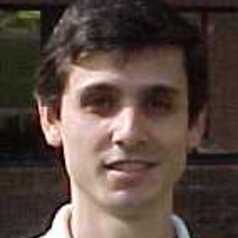
Caio Coelho
Senior Research Scientist, Center for Weather Forecast and Climatic Studies (CPTEC), National Institute for Space Research (INPE), Instituto Nacional de Pesquisas Espaciais (Inpe)
I am a Senior Research Scientist at Brazil's Centre for Weather Prediction and Climate Studies (CPTEC), part of the National Institute for Space Research (INPE).
I'm a climate scientist with a specific interest in:
Statistical Analysis of climate variations
The El Nino Southern Oscillation (ENSO)
South American seasonal forecast
Probabilistic Forecasts and Bayesian Statistics
Less ![]()
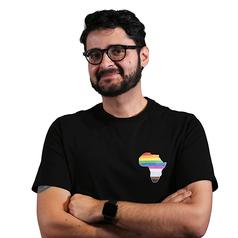
Caio Simões de Araújo
Postdoctoral Curatorial Fellow, Centre for Humanities Research, University of the Western Cape
Caio Simões de Araújo is a postdoctoral curatorial fellow at the Centre for Humanities Research, University of the Western Cape, South Africa. Before joining the CHR, he held postdoctoral research positions at the Wits Institute for Social and Economic Research (WiSER) and the Centre for Indian Studies in Africa (CISA), of the University of the Witwatersrand. He is currently the research officer at the Other Foundation, an African trust that advances equality and freedom in southern Africa with a particular focus on sexual orientation and gender identity. In collaboration with the Gay and Lesbian Archives for Action (GALA) of South Africa, he is currently heading an oral history project, Archives of the Intimate: Queer Histories of Mozambique, which intends to produce an archive of life histories and queer identities in Mozambique. His research interests involve the history of Afro-Asian decolonisation, transnational histories of race and anti-racism, and gender and sexuality in the global south.
Less ![]()
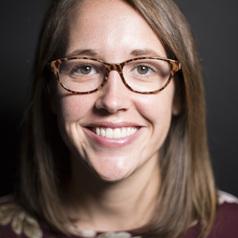
Caitie Kuempel
Lecturer, School of Environment and Science, Griffith University
I am a conservation scientist with interests in sustainable seafood, land-sea interactions, and conservation planning. I am passionate about finding ways to meet the needs of the growing human population while minimising impacts on the environment – particularly in the world’s oceans. I am currently a Lecturer in marine ecosystem modelling at Griffith University. I completed my PhD at the University of Queensland in protected area design and evaluation, followed by post-doctoral positions at NCEAS UC Santa Barbara mapping impacts of the global food system and University of Queensland exploring ways to manage and monitor climate resilient reefs to benefit people and nature. I also holds degrees in marine biology (M.S.), environmental science (B.S.) and French (B.A.).
Less ![]()
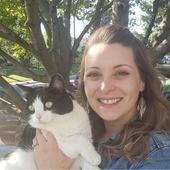
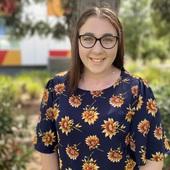
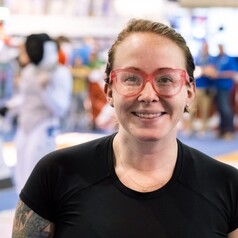
Caitlin Fox-Harding
Lecturer/Researcher, Edith Cowan University
Dr Caitlin Fox-Harding is a Lecturer within the School of Medical and Health Sciences at Edith Cowan University. She is also the unit coordinator for components within the Exercise and Sport Science discipline, the course co-ordinator for the undergraduate double degree (W31) Bachelor of Science (Exercise and Sports Science)/Bachelor of Commerce (Sport Business), and is passionate about student learning.
Caitlin has been involved in elite sport for 15 years during her time as a competitive athlete in the Olympic sport of fencing. She is now an active member of the International Fencing Federation (FIE)'s Women & Fencing Council and is the founder and chair of the Australian Fencing Federation (AFF)'s Diversity, Equity and Inclusion Committee. She was previously the AFF's national High-Performance Manager and in charge of sporting operations before then serving as a board member.
Professional Associations
Exercise and Sport Science Australia (ESSA)
Society for Mental Health Research (SMHR)
Australian Psychological Society (APS)
American Society of Clinical Oncology (ASCO)
Clinical Oncology Society of Australia (COSA)
Higher Education Research and Development of Australasia (HERDSA)
Research Areas and Interests
Caitlin is fascinated with preventative medicine and finding ways to improve the human condition. Her research interests include the effects of structured exercise for pregnant women, people diagnosed with breast cancer, and as a form of adjunct treatment for those with severe psychiatric illnesses. Caitlin's research interests also encompass women in sport and elite athlete mental health.
Qualifications
Masters of Education, Edith Cowan University, 2024
Graduate Certificate in Academic Practice, Edith Cowan University, 2022.
Doctor of Philosophy, The University of Sydney, 2019.
Bachelor of Arts, (Brown University) United States of America, 2014.
Less ![]()
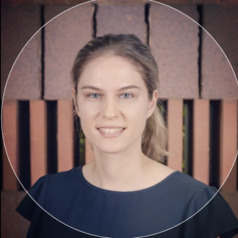
Caitlin Horsham
Research Manager, The University of Queensland
Caitlin Horsham is a Research Manager at the Centre for Health Services Research, Faculty of Medicine, University of Queensland.
Less ![]()
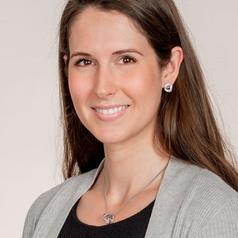
Caitlin Jones
Postdoctoral Research Associate in Musculoskeletal Health, University of Sydney
Dr Caitlin Jones is a postdoctoral research associate at the University of Sydney, Sydney Musculoskeletal Health. Her research evaluates the benefits and harms of treatments for musculoskeletal conditions, with a particular focus on opioid medicines.
Less ![]()

Caitlin Macmillan
Casual Academic, Deakin University
Caitlin is a casual academic at Deakin University (School of Psychology), and is also a Research Officer and Data Analysis and Fieldwork Coordinator at Murdoch Children’s Research Institute. Caitlin has a Bachelor in Psychology (Hons) and in 2016 completed a Master's of Research in Health Systems and Populations where she explored donor-conceived people's perspectives and experiences, including donor seeking behaviours. In 2022 she submitted her PhD investigating parenting, parenting-child relationships and adjustment in donor-conceived families and continues to conduct research in the area, as well as engage in research in Autism, and early child health and education strategies for vulnerable families.
Less ![]()
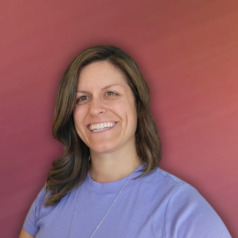
Caitlin Milera
Research Assistant Professor of Aerospace, University of North Dakota
Dr. Caitlin Milera is the Director of the North Dakota Space Grant Consortium (NDSGC) and North Dakota NASA EPSCoR (Established Program to Stimulate Competitive Research). Dr. Milera is also a Research Assistant Professor in the John D. Odegard College of Aerospace Sciences at the University of North Dakota. Dr. Milera’s educational background includes a Ph.D. in Teaching and Learning with an emphasis in Higher Education, an M.S. in Space Studies, and a B.S. in Astrophysics. Her research interests include diversity, equity, inclusion, and accessibility (DEIA) initiatives, engagement of underserved and underrepresented communities in STEM fields, and LGBTQIA initiatives in higher education.
Less ![]()
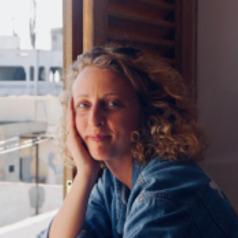
Caitlin Procter
Marie Skłodowska-Curie Research Fellow, Graduate Institute – Institut de hautes études internationales et du développement (IHEID)
Caitlin Procter is a Marie Skłodowska-Curie Research Fellow at the Centre on Conflict Development and Peacebuilding. She is also a part-time Professor at the Migration Policy Centre at the European University Institute. She is a political anthropologist and her research focus is on youth, protracted conflict and displacement. She has worked extensively on Palestine including field research in Gaza, as well as in Jordan, Lebanon, and on Syria and Tunisia. Caitlin earned her PhD (DPhil) in International Development at the University of Oxford in 2019 and was a Max Weber Postdoctoral Fellow at the EUI from 2019-2020. She also works regularly as a consultant for UNRWA, UNHCR, UNICEF, UNDP and Save the Children.
Less ![]()
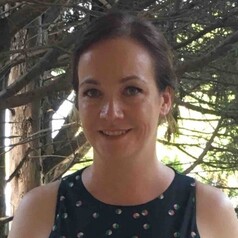
Caitlin Reader
Research Assistant at the Centre for Healthy Sustainable Development, Torrens University Australia
Caitlin Reader is a Research Assistant at Torrens University. She is also a Provisional Certified Practising Speech Pathologist. Passionate about supporting clients and families to build communication confidence and achieve their potential.
Less ![]()

Caitlin West
PhD Candidate in Drama and Theatre Studies, The University of Queensland
I am currently in the final year of my PhD candidature at the University of Queensland. I tutor in English Literature and Drama and Theatre Studies, and my area of study is contemporary Shakespeare Dramaturgy. In 2017 I graduated from a Masters of English Studies at the University of Sydney.
Less ![]()
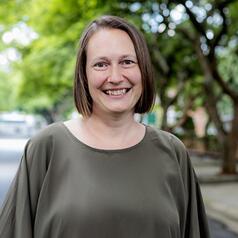
Caitlin Blaser Mapitsa
Associate Professor, School of Governance, University of the Witwatersrand
Dr Caitlin Blaser Mapitsa’s research interests focus firstly on transboundary governance, of both land and people.
She is interested in understanding what drives change in complex social and ecological systems, and which tools can best help us understand these changes.
The second focus is on building contextually relevant evaluation approaches, and how evaluation can be a tool to align institutional practice with values systems and developmental objectives.
She holds a PhD in migration and displacement from the University of the Witwatersrand’s African Centre for Migration and Society. She received an MA from the same institution, a BA from Wellesley college in international relations and French, and a postgraduate diploma from the University of Stellenbosch in monitoring and evaluation. She is also the research director at the School of Governance.
She has worked as an evaluator in civil society, with Resilient Waters evaluating efforts to foster climate resilience in the Okavango and Limpopo river basins, as well as establishing learning systems with the Global Call to Action Against Poverty. She also worked with the Centre for Learning on Evaluation and Results, supporting efforts to strengthen monitoring and evaluation systems within public sector institutions across the region through peer learning.
Less ![]()
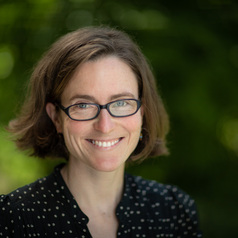
Caitlin M Prentice
Postdoctoral Fellow, Department of Psychology, University of Oslo
Caitlin is a postdoctoral researcher in the Department of Psychology at the University of Oslo. Her current research focuses on mental health and education outcomes for siblings of children with chronic disorders. She previously worked as a primary school teacher and completed a PhD in Education at the University of Oxford which examined educators' interactions with refugee and asylum seeking pupils.
Less ![]()
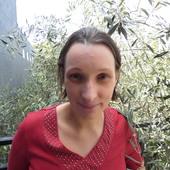
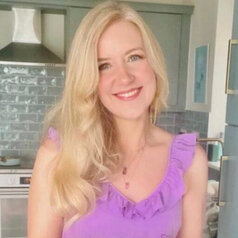
Caitríona Walsh
Lecturing in Film Music & Piano, University College Cork
I'm a writer and music educator based in Cork, Ireland. My writing foregrounds femininity, eros, and the body as thematic scaffolds for exploring soundtrack ingenuity - and ways in which screen music enables us to hear all "the feels" - particularly in film scores by composers like Jonny Greenwood and Mica Levi with a background in popular music.
My work has featured in national radio podcasts and print in the Irish popular press, and in international publications like 'Music and the Moving Image' journal, and 'Women’s Music for the Screen: Diverse Narratives in Sound' – the first book of its kind dedicated to spotlighting the output of female screen composers.
My teaching ethos is person-centred, drawing from my background in psychology and pedagogy, and ongoing engagement with modalities of health and holism. As such, I emphasise integrative, embodied educational strategies in order to inspire students, to centre them comfortably in physicality, and to empower them to actualise their musical, intellectual, and creative potential.
Less ![]()
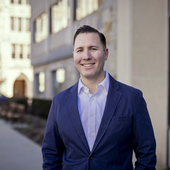
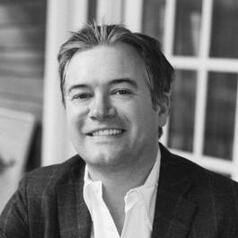
Calder Walton
Assistant Director, Applied History Project and Intelligence Project, Harvard Kennedy School
Calder Walton is Assistant Director of the Belfer Center's Applied History Project and Intelligence Project. His research is broadly concerned with intelligence, history, grand strategy, and international relations. His research has a particular focus on policy-relevant historical lessons for governments and intelligence communities today.
Calder is finishing a book, Spies. The Hundred Year Intelligence War between East and West, to be published by Simon & Schuster and Little Brown in 2023. His research, and commentary, about national security issues frequently appear in major news and broadcast outlets on both sides of the Atlantic.
Calder is also general editor of the multi-volume Cambridge History of Espionage and Intelligence to be published by Cambridge University Press. Over three volumes, with ninety chapters by leading scholars, this project will be a landmark study of intelligence, exploring its use and abuse in statecraft and warfare from the ancient world to the present day.
Calder's research builds on his first (award-winning) book, Empire of Secrets. British Intelligence, the Cold War and the Twilight of Empire (Harper-Press 2013). While pursuing a Ph.D. in History at Trinity College, Cambridge, England, and then a Junior Research Fellowship also at Cambridge University, Calder was a lead researcher on Professor Christopher Andrew's unprecedented official history of the British Security Service (MI5), Defend the Realm (2009). This research position gave Calder, for six years, privileged access to the archives of MI5, the world's longest-running security intelligence agency. As well as his research on intelligence history, Calder is also an English-qualified Barrister (attorney). He lives in Cambridge, Massachusetts, with his wife and young son, who each day teaches him more about skulduggery than anything else.
Less ![]()

Caleb Duffield
PhD Student in Political Science, McMaster University
I completed an honour’s bachelor degree in Political Science and Law, before receiving an MA in Applied Politics at Laurier. I’m currently in the second year of my PhD in Political Science program at McMaster University. My research, broadly pertaining to comparative public policy and Canadian politics, focuses on decarbonization and energy transitions, climate-induced migration, digital safety, and sports politics.
Less ![]()
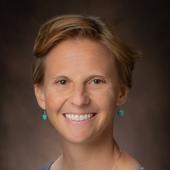
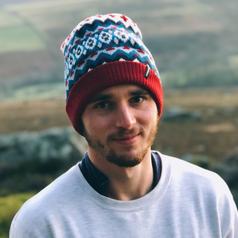
Callum Smith
PhD Candidate in Biosphere-Atmosphere Interactions, University of Leeds
I am a fourth year PhD student in the Biosphere and Atmosphere group. I received my master's and undergraduate degrees from the University of Leeds. During my undergraduate, I studied abroad at Monash University in Melbourne.
My research interests are investigating how deforestation in the tropics is affecting local and regional and global climate. I use remotely sensed and insitu data to assess the impact that land-use changes have on climate.
Less ![]()
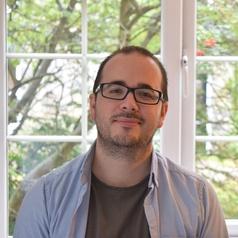
Calum Carson
Senior Research Associate, Lancaster University
Senior Research Associate at Lancaster University primarily interested in decent work, corporate social responsibility, living wages, active labour market policy, and the future of work. I am currently employed as a researcher on the Inclusive Remote and Hybrid Working Study, exploring disabled workers' experiences of remote and hybrid working (more information at https://wp.lancs.ac.uk/inclusive-working/).
Prior to this I was a Postdoctoral Researcher on the “Universal Credit and Employers” project, led by Dr Katy Jones of Manchester Metropolitan University, which sought to explore employer views of active labour market policies (ALMPs) and the requirements that underpin Universal Credit for people who are unemployed and workers on a low income (final report at https://www.mmu.ac.uk/sites/default/files/2023-01/UniversalCreditandEmployersFinalReportJan2023.pdf).
My PhD thesis (conducted at the University of Leeds) explored the multi-dimensional impact of the Real Living Wage on the UK employment landscape through a focus on the experiences of workers, employers and advocates (https://etheses.whiterose.ac.uk/28221/). Prior to this I was employed as a researcher at the International Labour Organisation, Geneva (focusing on the Decent Work Agenda).
Less ![]()
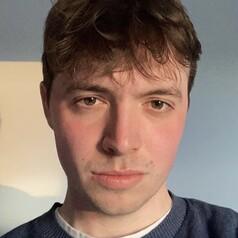
Calum Maclaren
PhD Candidate, Climate Litigation, University College Dublin
Calum is a PhD researcher in UCD Sutherland School of Law focusing on the various emerging approaches to corporate legal accountability for environmental harm. His work evaluates the efficacy and viability of various legal approaches to holding corporations accountable.
Calum began his research on a UCD Sutherland School of Law Doctoral Scholarship and was later awarded funding by the joint partnership between the Environmental Protection Agency and the Irish Research Council. Calum holds an LLM (General) from the University of Galway, with a minor thesis focusing on environmental human rights. Prior to this, Calum graduated first in his year in a BCL with Legal French degree from the University of Galway. He also holds a Diploma in European Union Law Studies from the Université Toulouse Capitole.
Less ![]()
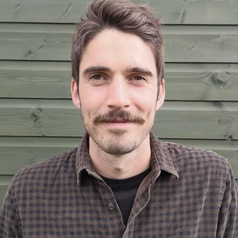
Calum McGeown
Research Assistant at the Centre for Sustainability, Equality and Climate Action, Queen's University Belfast
Calum's research interests are in political economy, power and social change. He completed his interdisciplinary PhD on revolutionary political struggle and the planetary crisis in 2023, and has published on themes of democratisation, prefigurative politics and the role of universities in the context of the climate and ecological emergency. He is a member of the Centre for Sustainability, Equality and Climate Action (SECA) at Queen's University Belfast.
Less ![]()
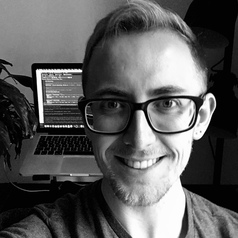
Calum Webb
Lecturer in Quantitative Social Science, University of Sheffield
Dr. Calum Webb is a British Academy Postdoctoral Fellow and Lecturer in Quantitative Social Science at the Sheffield Methods Institute, the University of Sheffield. His research focuses on applying advanced quantitative methods to better understand the links between poverty, public service funding, and the children's social care system.
Less ![]()
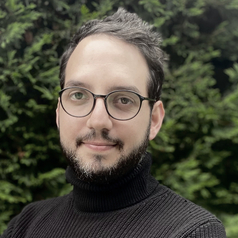
Calvin D. Ullrich
Senior Lecturer in Interdisciplinary Theology, University of the Free State
Calvin D. Ullrich is currently senior lecturer in interdisciplinary theology in the Department of Historical and Constructive Theology at the Faculty of Theology and Religion of the University of the Free State, South Africa. He received his PhD in systematic theology from the University of Stellenbosch, with a concentration on political theology and continental philosophy of religion. He was formerly a research fellow at the Ecumenical Institute of the Ruhr-Universität, Bochum Germany, and is currently the principal researcher in a German Research Foundation funded project, investigating phenomenologies of embodiment, affect theory and systematic theology. Alongside the fields of political theology, public theology, embodiment and continental philosophy of religion, he also maintains interests in secular, post-secular studies, radical democratic theory and psychoanalysis.
Less ![]()
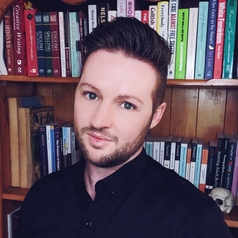
Cambrey Payne
PhD candidate, University of Adelaide
Cambrey Payne (he/they) is a queer, autistic PhD researcher and writer. His current research, 'Embodying Autism', explores how autistic adults make meaning from their embodied experiences, with emphasis on centring autistic voices.
Cam has a background in Gender Studies, completing his Honours in 2019 at the University of Adelaide. His research engages with the ways politics of identity are enacted by queer and other marginalised groups.
He currently convenes the Disability Studies/Crip Theory reading group, which includes academics from multiple Australian universities. He also leads a regular writers' group for aspiring teenage writers.
Less ![]()
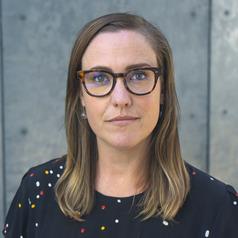
Cameo Dalley
Senior Lecturer, The University of Melbourne
Dr Cameo Dalley is a settler descendant and anthropologist. Her multidisciplinary research has explored Indigenous identities, belonging in contemporary Australia, native title, pastoral economies, and contemporary agribusiness. Her research relationships include to Lardil, Yangkaal and Kaiadilt people in the Wellesley Islands, Gulf of Carpentaria, and the Kimberley region of Western Australia. She is the author of 'What Now: Everyday endurance and social intensity in an Australian Aboriginal community' (2021, Berghahn), and co-editor with Dr Ashley Barnwell of 'Memory in Place: Locating colonial histories and commemoration' (2023, ANU Press). She has held academic appointments at the Australian National University, Deakin University, and the University of Melbourne where she is currently a Senior Lecturer in the Indigenous Studies Program. She is an editorial board member of the Journal of Australian Studies and her research has been funded by the Australian Institute of Aboriginal and Torres Strait Islander Studies and the Attorney-General’s Department.
Less ![]()
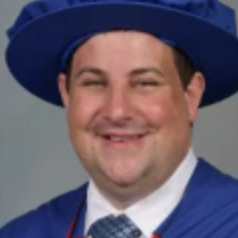
Cameron Anderson
Adjunct Senior Lecturer, La Trobe Rural Health School, La Trobe University
Less ![]()
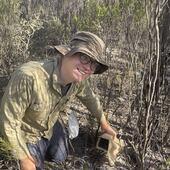
Cameron Dodd
PhD Student in Evolutionary Biology and Taxonomy, The University of Western Australia
Less ![]()
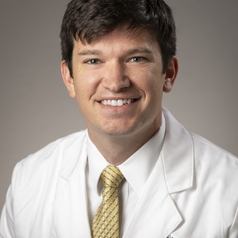
Cameron Gettel
Assistant Professor of Emergency Medicine, Yale University
Cameron Gettel, MD, MHS is an Assistant Professor in the Department of Emergency Medicine, a Clinical Investigator at the Yale Center for Outcomes Research and Evaluation, and the Co-Director of the Yale Emergency Scholars (YES) Fellowship. Dr. Gettel aims to advance the understanding of emergency department care transitions in the growing geriatric population through the identification and development of patient- and caregiver-reported outcome measures and then to design, implement, and validate innovative care transition strategies and interventions to improve clinical outcomes.
Less ![]()
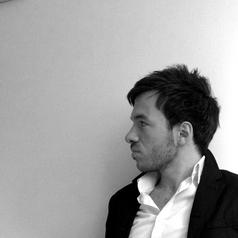
Cameron McEwan
Associate Professor in Architecture, Northumbria University, Newcastle
Cameron McEwan is an associate professor, architectural theorist, and educator at Northumbria University School of Architecture. He is Head of Equality Diversity Inclusion at Northumbria University Department of Architecture and Built Environment and Design Research Lead for the Architecture Unit. Prior to joining Northumbria in 2022, Cameron led the architecture theory research cluster and was Research Environment Lead for UoA32 for REF2021 at University of Central Lancashire. In 2011 Cameron was founding member of the AE Foundation, an independent research institute for architecture and education. Cameron’s research focuses on the relationship between architectural typology, representation, and subjectivity to engage critical approaches that address the urban/Anthropocene pressure. He employs close-reading, montage, and close-drawing as design research tools to investigate ideas, drawings, texts, and projects. Those research interests and critical approaches cross over into teaching theory, tectonics, and design.
Cameron holds a Masters in Architecture with distinction from University of Dundee School of Architecture and PhD in History and Theory of Architecture from the University of Dundee Geddes Institute for Urban Research with a thesis on Aldo Rossi’s Analogical City. Cameron has held research fellowships with the Society of Architectural Historians of Great Britain (SAHGB) (2018), University of Edinburgh Scottish Graduate School for Arts & Humanities (SGSAH) (2014), and as University of Dundee Geddes Fellow for Doctoral Studies (2009–14).
Cameron has led design studio and theory programs at institutions including: Northumbria University, University of Central Lancashire, Dundee School of Architecture, Edinburgh Napier University School of Arts, Wuhan School of Architecture, and Hong Kong VTC Architecture. Cameron has been invited speaker at IUAV Venice, TU Dresden, TU Graz, Manchester MMU, Glasgow Mackintosh School of Architecture, The Cooper Union New York, and elsewhere. He sits on the Editorial Review Board of the Quartile 1 journal Archnet-IJAR, the Design Research Society, and the College of Reviewers for UKRI.
Cameron’s work is published internationally in peer-reviewed and critical practice journals and venues including: Archnet-IJAR, Architecture and Culture, arq: Architectural Research Quarterly, Drawing On, Graz Architecture Magazine, Journal of Architectural Education, Lo Squaderno, MONU, Scroope: Cambridge Architecture Journal, Outsiders for the 2014 Venice Architecture Biennale, and elsewhere. Cameron’s editorial projects include, with Samuel Penn, Accounts (Pelinu, 2019); with Lorens Holm, Architecture and Collective Life for a special double issue of Architecture and Culture (Taylor & Francis, 2020); and with Nadia Bertolino and Cristina Mattiucci, Care and Critical Action for a special issue of the open access independent journal Lo Squaderno (Professionaldreamers, 2023). Cameron’s book Analogical City is forthcoming (Punctum, 2023).
Cameron is Principal Investigator on the Northumbria University funded project Peripherocene (2023), which investigated the corollary between Anthropocenic forces and the production of peripheral urban space. With Andreas Lechner, Cameron leads the international network, Peripheries.
Less ![]()
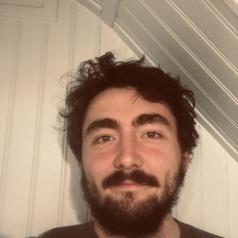
Cameron Morin
Docteur en linguistique, ENS de Lyon
Recherches à l'interface de la linguistique cognitive et la sociolinguistique.
Less ![]()
- Market Data

















